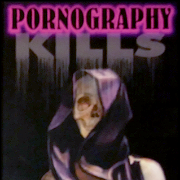|
Lurks With Wolves posted:The problem with 5e, and the reason people keep bringing up 4e in this thread, is that the problem with 4e the designers tried to solve was "people on the internet got really mad at 4e and don't want to see any of it in the next edition".
|
|
|
|

|
| # ? May 18, 2024 07:35 |
|
My Lovely Horse posted:My impression (albeit as a guy who never really played 1st or 2nd edition) is that until 5E came out, every new edition brought something new to the table. You could like or dislike it, but that's how it was. 5E explicitly went backwards. To say 5e brings nothing new to the table is incorrect. It does have some new concepts, and even some refinements of some old stuff. It's just that it also goes backwards in some very silly ways.
|
|
|
|
So Critical Role brought a very important question to mind: If you are invisible and defecate in someones bed is the fecal gift invisible as long as the spell lasts? Important 5e information. Too important to be left up to a mere mortal DM. Help me SA youre my only .. hmm.
|
|
|
|
I think anything not worn or carried or a part of you would lose invisibility.
|
|
|
|
My Lovely Horse posted:My impression (albeit as a guy who never really played 1st or 2nd edition) is that until 5E came out, every new edition brought something new to the table. You could like or dislike it, but that's how it was. 5E explicitly went backwards. The 1st to 2nd transition wasn't as big as the 2nd to 3rd transition, but there were still a lot of changes to the way things were done. Next definitely brings new things to the table, although not as much as any other transition I can think of. Maybe the 3-3.5 change was smaller, but I'm not that familiar with 3 so I don't all the ways 3.5 is different. FRINGE posted:So Critical Role brought a very important question to mind: A good GM will not let the game poo poo the bed. Elector_Nerdlingen fucked around with this message at 07:43 on Aug 17, 2015 |
|
|
|
AlphaDog posted:Next definitely brings new things to the table, although not as much as any other transition I can think of. Maybe the 3-3.5 change was smaller, but I'm not that familiar with 3 so I don't all the ways 3.5 is different. 3.0 -> 3.5 was basically just a big errata. Of stuff that actually mattered - Druid got better, Ranger became playable, Skills were consolidated a bit.
|
|
|
|
bewilderment posted:To say 5e brings nothing new to the table is incorrect. It does have some new concepts, and even some refinements of some old stuff. Such as...?
|
|
|
|
quote:I would say 13th Age is a better 5e than 5e Okay, 13th age is an okay-ish rpg, but no, this is wrong. The grid-less combat rules work about the same as 5e, the only difference is that for AoE, you roll a 1d3+1 to target enemies in a group and friendly fire isn't a thing. The skill system is narrative driven in the sense that there's little functional difference between an "I'm Batman" skill and a "Fisherman" skillset in how you can justify rolling the skill. Class design is only superficially like 4e. Classes get "interesting things" that are pretty much poo poo. I went into this when 13th age came out here: https://docs.google.com/document/d/1wc4NYMKWrszlUuppR4-uD_xIPNSdYXCvBGW3xT11Ifc/edit And how each class was broken and how to fix it here: https://docs.google.com/document/d/1lJ4XVKdGDv8dhrssM_7V5niO8JxCpvm-BeSsFejitXA/edit The simple math of the system does make it easier to balance things after the fact, but it's really bad that with such a simple setup the designers screwed things up so much. The caster supremacy is also a ton stronger than in 5e. First, casters are much better in combat. Every single spell levels up automatically with level, so at max level you have 9 9th level spells and 3 8th level spells. Meanwhile, martial abilities never scale and have much, much weaker effects and rely on random triggers. Combat spells can be used to do whatever you want out of combat, and utility spells are broad enough that they're pretty much "solve anything" too, more than in 5e. In the original FAQ, they had one question that was "How does 13th Age solve the Quadratic Wizard/Linear Fighter problem?", which they answered that fighters gain extra damage each level. After these points were shown to the devs, they took that question down. 13th Age isn't a terrible rpg. It does some things better than 5e, like monster design. But most of the praise for it is kneejerk "It's not 5e!" rather than judging it on its own merits.
|
|
|
|
Really Pants posted:Such as...? I suppose the BIFTs are new (Bond, Ideal, Flaw, Trait), kind of, at least the way they're handled here. They're not really new but they are in the core and new in the way they're treated. So that's something. I guess. The refinements are easier to spot (e.g. backgrounds) but something really new not so much.
|
|
|
|
Sage Genesis posted:I suppose the BIFTs are new (Bond, Ideal, Flaw, Trait), kind of, at least the way they're handled here. They're not really new but they are in the core and new in the way they're treated. So that's something. I guess. The way they're handled here is that the PHB says "Choose some from this list," and that's it. They are a non-feature.
|
|
|
|
quote:Okay, 13th age is an okay-ish rpg, but no, this is wrong. Welp, when I'm wrong, I'm wrong. That was fairly educational though, so thanks.
|
|
|
|
Really Pants posted:The way they're handled here is that the PHB says "Choose some from this list," and that's it. They are a non-feature. Yeah I agree with you. I mention BIFTs as the single most "newest" thing in 5e that I can think of, and let's face it it's not very new. Or, as you say, that big of a deal.
|
|
|
|
Really Pants posted:Such as...? Inspiration is a non-feature by non-DnD standards, but by DnD standards it's Actual Roleplaying Mechanics! Advantage/Disadvantage has its up and downs but it's probably, in the current state of the game, a better system than doing your best to stack bonuses upon bonuses. Less math is more better. It's basically the old '+2 circumstance bonus' with slightly different math and no actual addition required.
|
|
|
|
bewilderment posted:Inspiration is a non-feature by non-DnD standards, but by DnD standards it's Actual Roleplaying Mechanics! I'd give Advantage/Disadvantage a bit more credit than that. Stacking bonuses was really a hassle, but more than that, a +2 bonus was lame. All it ever did was change the outcome of 10% of rolls from failure to success. 9 times out of ten, it didn't do anything. Advantage is elegant in that, if you're doing something you're good at, it cuts the chance you'll screw it up in half. If you're doing something you're not good at, it doubles your chance of success. It's always going to be significant, and since you're rolling twice, it always feels significant too, which is actually something important in game design.
|
|
|
|
bewilderment posted:Advantage/Disadvantage has its up and downs but it's probably, in the current state of the game, a better system than doing your best to stack bonuses upon bonuses. Less math is more better. It's basically the old '+2 circumstance bonus' with slightly different math and no actual addition required. Is it seriously true that the standard skill DCs were copied from 3.5, where you're expected to have all those bonuses, and they never got corrected down?
|
|
|
|
Really Pants posted:Is it seriously true that the standard skill DCs were copied from 3.5, where you're expected to have all those bonuses, and they never got corrected down? No, those were part of one of the earliest playtest docs. The skill DC table 5e uses is this:  It's still not ideal, but that boils down to the d20 system, and the fact that task DCs don't scale up as you gain levels like in 4e is a marked improvement. edit: It also didn't help that 4e had a different table for DCs in the DMG, in the errata'd DMG, then the DMG 2, then the Rules Compedium, plus probably some more I'm not remembering. The dev team really had no idea how to handle skills because the system was too closely tied to the combat, which had a much more narrow range of numbers. Quadratic_Wizard fucked around with this message at 14:02 on Aug 17, 2015 |
|
|
|
Quadratic_Wizard posted:I'd give Advantage/Disadvantage a bit more credit than that. Stacking bonuses was really a hassle, but more than that, a +2 bonus was lame. All it ever did was change the outcome of 10% of rolls from failure to success. 9 times out of ten, it didn't do anything.  Less pedanticly, advantage is pretty typical of D&D next innovations. It looks fine at first glance, but has unexpected math issues (disproportionately benefits monsters, the difference between rolling with and without advantage is hilariously huge), exacerbates existing issues (increased crits mean even swingier hp combat), interacts weirdly with other systems (luck), doesn't do what it promised (there are still +X bonuses around, like the cleric cantrip), and was done better by other systems a decade ago. Also it was in 4E in ways that actually worked (avengers, defiling(ish) from dark sun, various unique powers) e: and other editions. Innovative. Splicer fucked around with this message at 14:27 on Aug 17, 2015 |
|
|
|
At some point I sat down and worked out the increases and decreases in probability given by Advantage/Disadvantage, and while I didn't keep my notes, I remember that in the range of results that tends to be relevant in D&D (i.e. between 7 and 14) it works out to roughly a +4 bonus (-4 penalty), less outside of that range.
|
|
|
|
On the one hand, advantage is a neat idea that feels substantial. On the other hand, advantage requires rolling twice as many dice, which slows down the already glacial pace that D&D runs at. This is compounded by extra attacks, and can only really be mitigated by rolling colored pairs of d20s.
|
|
|
|
Quadratic_Wizard posted:The grid-less combat rules work about the same as 5e, the only difference is that for AoE, you roll a 1d3+1 to target enemies in a group and friendly fire isn't a thing. MadScientistWorking fucked around with this message at 15:02 on Aug 17, 2015 |
|
|
|
MadScientistWorking posted:I love how you have no loving clue what the hell you are talking about. Friendly fire is definitely a thing in 13th Age. Its just that like in 4th edition it explicitly gets called out as to whether or not it is a friendly fire spell. Seriously how do I trust your advice when you didn't even read the rulebook clearly? That's a bit hostile. Since it's been literally years since I've looked at 13th age, I had dug up my old pdf and looked through wizard spells till I found a few staples, color spray and lightning bolt.  But yeah, going further down the spell list, fireball specifically has an option to toast your allies in an all or nothing way:  4e and 5e are identical in the fiddly "aoe is all about imagining shapes on a battlefield of miniatures, just that 5e claims that you don't need the miniatures when you actually do. When you say that 4e and 13th Age aoe works identically, when 13th age is all about not using miniatures, it paints you as the one who has no loving clue (and to escalate things a notch) should just gently caress off, fuckboy. Of course, this a bit of an exaggeration and you simply made your point inelegantly and in a way that could be easily and technically proven false while ignoring the major points you were trying to make, same as I did.
|
|
|
|
Quadratic_Wizard posted:Okay, 13th age is an okay-ish rpg, but no, this is wrong. This is wrong, because you're skipping over the most important part of why 13th Age works gridless. It doesn't measure everything in feet but instead uses vague zones to measure distances (you're either engaged, near by, or far away from a given enemy). Movement takes you from one zone to another. This is actually incredibly important, but I could see why you would skip over it when trying to oversimplify everything to prove your point. Quadratic_Wizard posted:The skill system is narrative driven in the sense that there's little functional difference between an "I'm Batman" skill and a "Fisherman" skillset in how you can justify rolling the skill. Speaking of oversimplifications, this is a hilarious misunderstanding of both skills and how fail-forward design is supposed to work. Quadratic_Wizard posted:The simple math of the system does make it easier to balance things after the fact, but it's really bad that with such a simple setup the designers screwed things up so much. Quadratic_Wizard posted:Combat spells can be used to do whatever you want out of combat, and utility spells are broad enough that they're pretty much "solve anything" too, more than in 5e. For reference, the list of utility spells are: Disguise Self Feather Fall Hold Portal Levitate Message Speak with Item Water Breathing Scrying If you think those are enough to "solve anything", you're disingenuous as gently caress. But I think we knew that already. There's also talents for martial classes that let them do declarative things as well, but I understand those don't help prove your point, so we can skip over those. I think it's also interesting to note that the spells that bypass normal skill checks (knock, disguise self) don't automatically solve the problem. Knock ends up being an Int roll while Disguise Self just provides a bonus to disguise checks. I know you have an enormous axe to grind with 13th Age for some reason, but you should probably just get over it.
|
|
|
|
The long and short of it is that if 5e was a revision of 2e instead of 3/3.5 things would have been much better. The resolution mechanics in 2 are weird but everything else about it is better for those that don't want the 4e style aedu. And honestly, the movement change from 2e to the latter systems is a giant change and is the only reason controllers work in 4e.
|
|
|
|
Also note that 13th age casters have much more restricted spell slots and much weaker spells (narratively) than casters in 5e. I don't think caster supremacy is more pronounced than 5e, though it is definitely still there.
|
|
|
|
To be fair, 13th Age rituals can be "broad enough" to solve many problems. But yeah Quadratic Wizard is presenting 13th Age really disingenuously.
|
|
|
|
Quadratic_Wizard posted:and the fact that task DCs don't scale up as you gain levels like in 4e is a marked improvement. They don't scale up in 4e, at least in the way that you're implying. The skill DCs in 4e are for appropriate challenges of that level. "Jump over a pit" and "jump over the Grand Canyon" are challenges of different levels, and somebody who can even try to do the latter will be able to beat the relatively tiny DC of the former every day.
|
|
|
|
Roadie posted:They don't scale up in 4e, at least in the way that you're implying. The skill DCs in 4e are for appropriate challenges of that level. Yeah, though 4e had really strict jumping rules where if you had a running start, a check of 50 would mean you could jump 10 squares, 50 feet, so long as you used a double move. It's not like 4e skillchecks were ever suggested as being able to do anything that wasn't mundane. In fact, if you look at the player's handbook for 4e, you see that skills were generally much more set in stone with what they did, discouraging DM's from letting players use them for more over the top things. Compare 5e Acrobatics  to 4e Acrobatics  It's possible to say "You're level 17, you can jump over the grand canyon if you make a DC 15-40 check.", but you'd be houseruling 4e or 5e when doing so.
|
|
|
|
Quadratic_Wizard posted:to 4e Acrobatics
|
|
|
|
Quadratic_Wizard posted:Yeah, though 4e had really strict jumping rules where if you had a running start, a check of 50 would mean you could jump 10 squares, 50 feet, so long as you used a double move. It's not like 4e skillchecks were ever suggested as being able to do anything that wasn't mundane. In fact, if you look at the player's handbook for 4e, you see that skills were generally much more set in stone with what they did, discouraging DM's from letting players use them for more over the top things. Compare 5e Acrobatics I find it a little bizarre how you manage to say this in the same post where you yourself have a picture of the "Acrobatic Stunt" aspect of 4e acrobatics. Like how is that more set in stone than 5e? I could see the argument for more codified, but not more rigid. Also the description for Acrobatic Stunt is explicit in encouraging more over-the-top things than the 5e description. Like, the evidence you're providing is contradictory to your assertions.
|
|
|
|
Quadratic_Wizard posted:talking about jumping Good job taking my hyperbolic example and completely missing the actual point of what I was talking about.
|
|
|
|
4e jump rules are actually hilariously restrictive though. So if you do encounter the grand canyon, try to backflip over it.
|
|
|
|
13a is explicitly built to work in a non-grid combat system. Your own examples prove it; Fireball hits a varied number of enemies, and can potentially hit allies if you open it up to the possibility of hitting even more enemies. The thing is, this is a choice the player makes. This isn't the DM randomly deciding (or going off some vague grid in his mind, at which point why not just use the fuckin' grid) on their own. It's true that wizards get 9 level 9 spells and 3 level 8 spells! And that's it. That's all their spells. 12 of them. Each spell can also only be memorized once (twice if you take a specific talent) so you have to spread them out, as well. Rituals I'll note are explicitly - as in it states in the text - not there to replace skills. They're big plot devices that - ready for this? - require you to use one of your skills. This was the big thing that lead to magic supremacy in other games - that you didn't need to roll. Knock just plain always works. 13a rituals do not. Rituals may as well be one big fancy skill roll. Now, I get that it sucks poo poo that fighters don't get cool on-command abilities. Thankfully, again unlike 5e, they're being added. The Glorantha book has basically no wizards. It has one sorcerer subclass and that's it. The Windlord is the fighter replacement with lighter armor, absurd mobility, a more aggressive build, and on-command powers. They actually get stronger as you fight - each battle per day you get an additional use of them, so the longer and more arduous the adventure, the more pumped up you get. Alongside their standard fighter talents they get new ones that let them do absurd things with throwing spears (LIKE RIDE THEM INTO BATTLE) or just outright fuckin' fly. Yeah, the fighter is the class that can get the ability to just outright fly on command! Your exploit powers include hurling lightning-spears, healing yourself to full immediately and cancelling save-effects on you through sheer gently caress off, just flat out halving an enemy's HP regardless of who they are (which is I believe potentially the most damaging effect in-game that nobody else can do), calling down a storm to strike at your enemies, etc, etc. Not that they're the only ones with new stuff. The alt-paladin gets an outright instant-kill move! Ain't no insta-kill wizard spell!
|
|
|
|
ProfessorCirno posted:Now, I get that it sucks poo poo that fighters don't get cool on-command abilities. Thankfully, again unlike 5e, they're being added. The Glorantha book has basically no wizards. It has one sorcerer subclass and that's it. The Windlord is the fighter replacement with lighter armor, absurd mobility, a more aggressive build, and on-command powers. They actually get stronger as you fight - each battle per day you get an additional use of them, so the longer and more arduous the adventure, the more pumped up you get. Alongside their standard fighter talents they get new ones that let them do absurd things with throwing spears (LIKE RIDE THEM INTO BATTLE) or just outright fuckin' fly. Yeah, the fighter is the class that can get the ability to just outright fly on command! Your exploit powers include hurling lightning-spears, healing yourself to full immediately and cancelling save-effects on you through sheer gently caress off, just flat out halving an enemy's HP regardless of who they are (which is I believe potentially the most damaging effect in-game that nobody else can do), calling down a storm to strike at your enemies, etc, etc.!
|
|
|
|
Splicer posted:This sounds more like a (well made, fun as balls) wind themed gish than a fighter though. Almost all martial characters of note in Glorantha are in-setting gish.
|
|
|
|
There's also the problem of 'magic' having come to mean 'everything supernatural' to a lot of people
|
|
|
|
Darwinism posted:There's also the problem of 'magic' having come to mean 'everything supernatural' to a lot of people Well, Glorantha actually calls everything supernatural 'magic'  As in, the priest does magic by emulating the gods, the sorcerer taps into the world's natural magic, the clan recieves blessings from their gods in the form of magic, ect. As in, the priest does magic by emulating the gods, the sorcerer taps into the world's natural magic, the clan recieves blessings from their gods in the form of magic, ect.That said, there are four different flavors of magic that all function and are flavored completely differently.
|
|
|
|
Darwinism posted:There's also the problem of 'magic' having come to mean 'everything supernatural' to a lot of people I don't think this is necessarily a problem. I think it's fine if a setting/rpg wants to declare everything beyond a certain point of human ability as 'magic'. i.e. Beowulf is magical just like Gandalf. In this case, though, every PC should be magical.
|
|
|
|
13th Age is also really easy to reskin since what your class is matters in combat, and almost nowhere else unless you're a wizard using their extremely limited utility spells (Disguise Self is probably the most powerful of them - everything else is about as strong as Feather Fall). In 13th Age if you're a paladin using Smite, you might be Judge Dredd saying "I AM THE LAW" and hitting someone really hard, or you can describe yourself going all Final Fantasy Omnislash on the guy and firing laserbeams out of your sword. The above applies to 5e as well, by my own play experience and GMs, but 13th Age makes it a lot more clear.
|
|
|
|
fool_of_sound posted:Well, Glorantha actually calls everything supernatural 'magic' IT BEGINS posted:I don't think this is necessarily a problem. I think it's fine if a setting/rpg wants to declare everything beyond a certain point of human ability as 'magic'. i.e. Beowulf is magical just like Gandalf. In this case, though, every PC should be magical. It's mostly a problem because of expectations - when everything supernatural is magic, everyone has to be a mage (or similar) to contribute, instead of 'magic' just being another way to contribute. This matters more or less based on setting or system, of course, but in my experience it's been a lot more harmful than helpful.
|
|
|
|

|
| # ? May 18, 2024 07:35 |
|
Darwinism posted:There's also the problem of 'magic' having come to mean 'everything supernatural' to a lot of people Everything supernatural being magic only really cause problems when you assume that because it's magic, PCs can do any of it, and some PCs don't get to do magic.
|
|
|




























